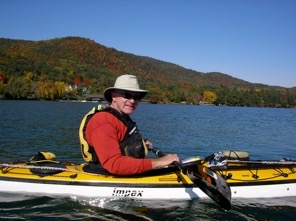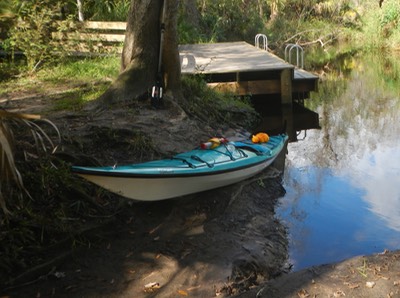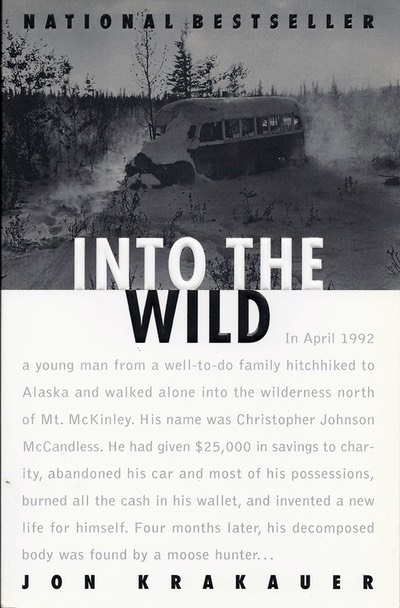
Book Reviewed: Totch: A Life in the Everglades
Author: Loren G. “Totch” Brown
Publisher:University Press of Florida, Gainsville
Copyright: 1993
ISBN:978-0-8130-1228-5
Type: Paperback
Reviewed by: Yackman

Yackman’s Rating: 9 points out of 10
I have struggled with how to review this book. For me, it is so much bigger and richer because of how it confirms and supports detail in several other books I’ve read on south Florida recently (see Killing Mr. Watson, Shadow Country and A Land Remembered in earlier book reviews. Also see Last Train to Paradise, the story of Henry Flagler’s overseas railroad and Black Cloud, the story of the 1928 hurricane that destroyed they city of Belle Glade and led to the construction of the Herbert Hoover Dike that rings the south end of Lake Okechobee.)
Totch: A Life In the Everglades is an autobiography written by Loren G. Brown, known as “Totch”. Totch was born in 1920 on Chokoloskee Island (three years after my father). He was one of five children born to J.J Brown and Alice Jane McKinney. There isn’t a page in this book that doesn’t connect with a person, location or event in one of the other books I have mentioned, or to places I have been on my paddling trips in the area. Yet this account is not historical fiction or researched non-fiction as the other books are. This is a first person account of life in the Everglades seen through the eyes and experiences of one man that bridges the generations between Ed Watson’s time and the time of Collier, Flagler and the other important figures of the 19th and 20th centuries.
For example, the Daniels family is prominent in Killing Mister Watson, manly because two Daniels sisters served as Watson’s live in housekeepers at Chatham Bend after his first wife died and another became ill and had to move to Fort Meyers. He had a daughter named Minnie with the older sister, Josie, and two children, Pearl and an infant son who died in the 1910 hurricane, with Netta, the younger Daniels sister. The story connection is that Totch’s aunts married two Daniels brothers who’s children became Totch’s cousins. (Also see Mary Ann Francis Daniels) Another example is the connection between Watson’s youngest surviving son Lucius, Totch and Totch’s older brother Peg. They were close friends for over forty years.
Totch was either an admirable survivalist, living as best he could off the land, a decorated war hero and devoted husband, or he was a moonshiner, poacher, drug runner and convicted IRS tax dodger. All of the above are true, depending on how you want to make your value judgements. He was also an author, actor, singer and songwriter.
Before there was an Everglades National Park (before 1947), Totch and his family lived on what they could take out of the Everglades. They trapped raccoons for fur and killed alligators for hides. These they sold for the few necessities they could not secure for themselves in the wild. Interestingly enough, they did not eat raccoon or alligator meat. They saw these animals as a source of hides generating cash, not as food. They simply tossed the skinned carcasses in the river and let the swamp creatures take care of the remains.
They killed “salt birds” (Night Herons and Ibis) and caught fish for meat. They collected many fruits that grew in the Glades for food and raised vegetables where they could. Totch’s Dad had stills hidden in the Glades where he made made moonshine all through prohibition, selling it to the locals. When Everglades National Park was established and hunting, especially gator hunting was banned, Totch only saw this as an inconvenience to his continuing the way of life he’d been born to. He delighted in evading capture by the park rangers when on his gator hunts, just as he got an adrenaline rush out of evading the Columbian and US Coast Guards in his drug running days. I must say that I could sympathize with the poaching in the National Park because it had been his way of life for many years. But I had a lot of trouble with the drug running. It seemed out of character and unnecessary.
Three generations of Browns and McKinneys disdained “game hunters”, folks who came to the Glades just to hunt and kill animals for the thrill of it. They took pride in the fact that they never killed an animal they didn’t need to survive. And none of them had the stomach for “plume hunting”. The vivid descriptions of this awful process evokes images of clubbing baby seals for their pure white skins. The Browns and McKinney’s shared the values of the Seminole Indians for whom they had great respect on this topic.
The book illustrates just how strong and hardy these men and women were. Life was hard, really hard physically with few modern comforts. I’m going to write a separate piece on “Swamp Angels”, the native’s term for mosquitos. Lets just say that they were a constant scourge, sometimes bad, sometimes not so bad, but always present. Totch’s most idillic period came in the early 1930’s when his family joined his uncle’s family living in Watson’s big house at Chatham Bend (Chatham Bend is a beautiful spot. I have camped there.) Even though it was the depth of the Depression , the family thrived by living off the land, and selling moonshine. Their biggest luxury was the big screened in front porch of the Watson house. With a little repair and ingenuity they were able to get some relief from the swamp angles and sand flees (which we call Noseeums).
An example of just how hard the work could be is exemplified by wash day. When I grew up, Monday was wash day and it took much of the day to complete. For these pioneer women wash day started with hauling water to several large wash tubs under which fires were kept burning. Clothes were boiled in soapy water then rinsed once in a second tub. Next they were scrubbed on a corse board to remove stains and rinsed again. After a final rinse and wringing out, the clothes were hung in the open to dry in the sun and wind. Left over wash and rinse water became bath water. Women and children washed first, then it was the men’s turn. All the while this process was going on, the women were expected to prepare three meals for their families. The men’s days were even more demanding and often dangerous, working in the fields or wading through the swamps hunting gators or checking traps. I found it curious and even hard to believe that no one wore shoes, or even owned a pair (I read this in several books. Totch Brown confirmed it). Whether working in the fields, wading in the swamps or hiking across oyster bars, they wore no shoes. I can’t walk across my lawn without something on my feet! These people were tough!
There are a few things that this book confirms that were read in the historical fiction accounts. Totch mentions the stills and moonshine but makes almost no mention of drinking and the part it played in pioneer culture. Yet excessive alcohol consumption plays a big roll in all the other books. It’s a curious omission and perhaps a bit self-serving.
Another area of interest is the Glades people’s relationship with the Seminoles. In the Watson book, the Seminoles are treated with great caution. One Seminole woman is banned from the tribe for mixing with whites. She is raped by a field hand on the Watson farm and hangs herself. Totch Brown confirms that mixing was banned and Seminoles were driven from the tribe because of it. In the book, “A Land Remembered”, there is what seemed to me an unrealistic friendship that developed between a group of Seminoles and the hero of the book. However, while not as symbiotic a relationship as this one, the Browns and McKinnys had good relationships with the Seminoles and showed them great respect. This seemed to be true of their relationships with the negro population as well.
As you can see, I got a lot out of this book, much more than I will try to add here. I don’t know if you would get as much from Totch’s story as I did, but it is a wonderful window into a way of life that is not so far back in time, a time when south Florida was a wilderness and Glades people like the Browns and McKinnys scratched out a living in the wilderness through determination, persistence and incredibly hard work.


